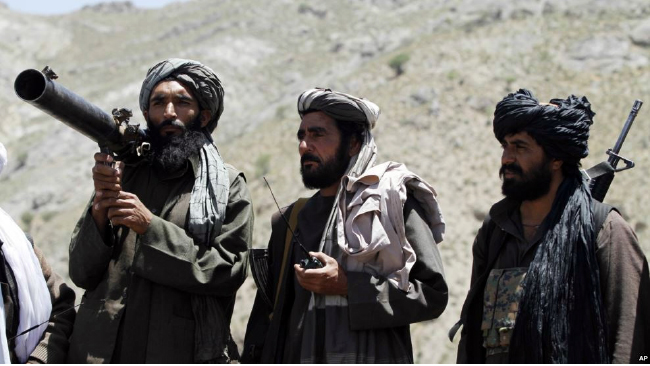“The important thing is for the leaders to try to really think about the country and its future, and how to better serve the people. Of course, since it is a political system, each of the political leaders has their own constituency, where they have to be able to deliver upon the expectations of their supporters – but Afghanistan is facing severe challenges; not only security, but also in terms of the economic situation, the human rights situation and corruption,” these words were spoken by UN envoy to Afghanistan Tadamichi Yamamoto on the eve of Brussels Conference co-hosted by EU and Kabul government.
The insurgency has mounted as the Taliban fighters intensified their terrorist attacks. Afghan nation bore the brunt of militancy and suffered great harm and heavy casualties within the past two years. Haibatullah’s predecessor Mullah Akhtar Mansour – who was killed in the US drone strike– captured Kunduz on late September 2015 as a result of spring offensive. Refusing peace talks, he declared Omari Operation in the current year and Haibatullah follows his footsteps through continuing the deadly attacks. The worst-case scenario of Kunduz takeover was repeated in the same year as the Taliban’s radical ideologue Mullah Haibatullah staged fatal attacks against Afghan government.
In the previous commentary about peace agreement with Hezb-e-Islami Afghanistan (HIA) led by Gulbuddin Hekmatyar, I wrote that it did not carry much weight in bringing peace and stability in the country since HIA were in conflicts with the Taliban. I also pointed out that Hekmatyar’s call on Taliban for peace talks would give an adverse result. Hence, the security situation has been deteriorated in the country despite the peace agreement with HIA and it is not a significant outcome for the government.
Afghan government still calls on warring parties to join peace process and stop violence and bloodshed. It is believed that with the death of Akhtar Mansour – who was considered a barrier before peace talks – there are still major setbacks before the negotiation, including Mansour’s successor. The peace talk is doomed to failure if Haibatullah, whose radical mindsets far outweigh Mansour’s – continues leading the Taliban outfits.
After all, the unmitigated militancy, which increases the death toll, will spread a sense of fear in the air and lead to mistrust between state and nation. According to public belief, the National Unity Government (NUG) is not able to protect the life and liberty of the citizens and there are many challenges in the government’s machinery. Besides administrative corruption and bribery, mainly in the judicial system, there is trust issue between the heads of NUG and their negative statements against each other are leaked to the media every once in a while.
Human Right is also an issue in Afghanistan and the rights and liberty of Afghan nation are violated on a large scale and the graph of civilian casualties increase with each passing day. The warring factions, especially the Taliban fighters, pose serious threat to citizens’ rights. They never consider the humanitarian law or the law of war. For instance, the last year’s Kunduz takeover was followed not only by deaths and wounds but a number of women were said to fall the victim of sexual assaults, prisoners were freed and streams of blood were spilt without an iota of mercy.
To Afghans’ unmitigated chagrin, the security situation deteriorates and political and economic challenges increase. In other words, the nascent democracy is undermined by armed insurgents and peace is a dream that never comes true for the nation. Neither human rights discourse nor the democratic paradigms were panacea for the problems.
The economic stagnation aggravates the challenges in the country. Afghanistan’s impressive average annual growth of nine per cent from 2002-2013 has declined rapidly since 2014. According to the World Bank’s World Development Indicators, annual GDP growth fell from 14.4 per cent in 2012 to 2 percent in 2013, and 1.3 and 1.5 per cent in 2014 and 2015 respectively. This drastic economic decline is mainly the result of the post-2014 international military drawdown and the year of intensified political instability that followed the 2014 election. Foreign troops once brought hundreds of millions of dollars into the Afghan economy, and their departure from 800 bases, large and small, deprives the country of what was after 2002 its largest single source of revenue. By one estimate, more than 200,000 Afghans have now lost jobs in logistics, security, and other sectors of a war-driven economy.
This sudden economic reversal has considerable political, security and social implications. Rising unemployment and widespread poverty is already widening the legitimacy gap between the NUG and the Afghan public, and expanding the reservoir of grievances that insurgents as well as hard-line ethnic and regional players could further exploit.
To mitigate the challenges, the government will have to tackle the problems within the state machinery and build trust among the politically influential figures. They have to centralize over eliminating corruptions, drug trafficking, bribery, nepotism, etc. In a nutshell, to undermine the terrorist networks, the government is to prioritize resolving the challenges and root out the contributing factors to terrorism, especially their financial resources namely narcotic cultivation and drug trafficking. Meanwhile, the intelligence service must be extended and the soldiers reinforced to overcome the war on terror.
Home » Opinion » The Protracted War
The Protracted War
| Hujjatullah Zia

